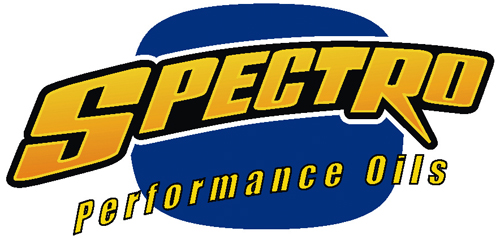
COAST TO COAST BIKER NEWS
Compiled & Edited by Bill Bish,
National Coalition of Motorcyclists (NCOM)

MOTORCYCLE THEFTS FALLMotorcycle thefts in the US fell by 13% to 56,093 last year from 64,492 in 2008, the biggest drop since 2007 according to the National Insurance Crime Bureau in an April 13th statement. Honda was the most stolen brand accounting for 24% of the thefts, followed by Yamaha, Suzuki, Kawasaki and Harley-Davidson, said the NICB citing National Crime Information Center data.
The recession prompted lower bike sales and a decrease in production, pushing motorcycle thefts down for a third consecutive year. Sales of new bikes fell 43% in 2009 from the year-earlier period, according to the Motorcycle Industry Council. Likewise, the Japanese Automobile Manufacturers Association reported a 47.4% decrease in motorcycle production last year.
Recovery rates have declined along with thefts, with only 30% of the stolen bikes recovered in 2009, compared with 41% in 2006, NICB data show.
The top five states for motorcycle theft were warm-weather ones: California, Texas, Florida, North Carolina and Georgia, together accounting for 39% of the total.
It should be no surprise that the summer months of July (6,319); August (6,079); and June (5,672) saw the most theft activity while the fewest thefts were recorded during the winter months of December (2,927); February (3,100); and January (3,570).
The best way to prevent theft is to keep your motorcycle out of sight or covered up and secured to an immovable object with a good through-the-frame lock in addition to the steering lock.

MAINE REQUIRES MOTORCYCLES TO DISPLAY INSPECTION STICKERS–
Maine Governor John Baldacci on April 9, 2010 signed LD 1675 into law, requiring the state’s 50,000 registered motorcycles to carry inspection stickers that are “completely and clearly visible from the rear” starting in 2012.
A bill that started in the state legislature as a broadly worded bill to quiet noisy motorcycles evolved into a measure requiring riders to display inspection stickers when Maine’s Transportation Committee concluded that 38% of Maine motorcycles aren’t inspected, noting faulty and noisy motorcycle mufflers would fail annual inspections.
The bill also sets up a task force to explore other methods of reducing motorcycle noise, including sound testing, and report to the Transportation Committee by January 15, 2011.
LD1675 passed the Maine House by a vote of 104-33 on March 22. The Senate passed it April 5, with no tally released.

MOTORCYCLE SAFETY BILL PASSES IN OKLAHOMA
“Gunner’s Bill” has been signed into law by Oklahoma Gov. Brad Henry, providing for the state?s first comprehensive motorcycle safety program.
HB 2264, authored by state Rep. Mike Christian and state Sen. Steve Russell, allows the state to add a $3 fee, designated for motorcycle safety and education, to the existing cost of registering a motorcycle. It also establishes a revolving fund into which the money is to be deposited.
Rep. Christian said the legislative action was necessary because motorcycle registrations continue to increase in Oklahoma; therefore, without training and prevention efforts, vehicle crashes involving motorcycles are likely to increase. According to the Oklahoma Tax Commission, there were 115,381 registered motorcyclists in the state in 2008, a 14.3% increase over 2007. Motorcycle fatalities increased 17.6% during the same period, and injuries increased 21.4%.
HB 2264 is known as “Gunner’s Bill” in honor of Robert “Gunner” Catcher, a motorcyclist who died after being struck by a pickup in 2009. The driver of the truck said he did not see Gunner.
?I heartily salute each and every one of ABATE of Oklahoma’s and the OK Confederation of Clubs volunteer officers and members, and look forward to our continued success working together in the spirit of unity to make Oklahoma the best state in which to ride,? said Tiger Mike Revere of ABATE of OK and a member of the Board of Directors of the National Coalition of Motorcyclists (NCOM).
Also signed into law was SB 1670 – a bill that changes the makeup of the Oklahoma Motorcycle Safety Advisory Committee. ?So, not only will we generate about $400,000 each year but we will also have a substantial say in how it is spent,? commented John Pierce, ABATE Legislative Coordinator.

WYOMING BIKERS WORK WITH CITY TO PROMOTE MOTORCYCLE AWARENESS
The Casper City Council voted unanimously to pay for motorcycle-safety billboards in the coming months, with Wyoming Central ABATE picking up the campaign halfway through the riding season. The council approved $5,400 in grant money to pay for four billboards from April through July, when Wyoming Central ABATE would begin paying for the billboards with its own message to run through October.
The push for motorcycle awareness stems from two high-profile accidents involving motorcyclists last summer, including an ABATE member who was killed by a left-turning Hummer. The accidents prompted Wyoming Central ABATE to meet with city officials and hash out a plan to increase awareness of motorcycles among drivers.
The Casper Police Department applied for grant money from the Wyoming Department of Transportation to be used on a ?campaign targeting the reduction of the number and severity of motorcycle crashes in the Casper area,? according to a city memo.

MICHIGAN HELMET LAW REPEAL REPEAT?
Once again, Michigan legislators are moving to repeal the state?s 40 year old mandatory helmet law, but their governor threatens veto action.
In late March, the House voted 63 to 46 to approve an amendment to the current Michigan Helmet Law which would allow motorcycle riders 21 years old and older to operate their motorcycle without a helmet as long as they carry $20,000 or more in insurance.
The bill now goes to the Senate for consideration. If the Democratic-led House and Republican-led Senate both approve as they have in the past, the bill would again go to the governor for her signature or veto. Proposals to eliminate or ease the law were passed by the House and Senate in 2005/2006 and 2007/2008, but Gov. Jennifer Granholm vetoed both measures.
ABATE of Michigan and the Michigan Confederation of Clubs continues to hold sway in the Legislature using arguments that include personal freedom and economic impact. The Democratic governor leaves office next year and is not seeking reelection.

MOTORCYCLE ADVISORY COUNCIL SURVEYS ROAD CONDITIONS
The Motorcyclist Advisory Council (MAC) to the Federal Highway Administration has made recommendations to U.S. Transportation Secretary Ray LaHood and his predecessors on various topics, including 1) Barrier design; (2) Road design, construction, and maintenance practices; and (3) The architecture and implementation of Intelligent Transportation System technologies.
Of special significance was the creation and approval of the yearly Motorcyclist Road Conditions Survey, which can be accessed at http://tinyurl.com/ykbqsr6.
The purpose of the survey is to better communicate to the MAC, road construction engineers, and transportation safety officials the specific needs of motorcyclists that should be considered when developing new roadways or altering existing routes.
The MAC-FHWA coordinates and advises the Secretary of the Department of Transportation on infrastructure issues of concern to motorcycle riders, and is comprised of ten members of the motorcycling community with professional expertise in national motorcyclist safety advocacy. James ?Doc? Reichenbach II, State President of ABATE of Florida and Chairman of the Board of the National Coalition of Motorcyclists (NCOM) serves on the MAC as one of two members representing state motorcyclists? organizations.

ANTILOCK BRAKES MAKE MOTORCYCLES SAFER
With motorcycle ownership skyrocketing from 4.3 million to 10.4 million over the past decade, and a corresponding increase in rider deaths and injuries, two new studies have found that equipping motorcycles with antilock brakes makes them much safer.
The studies, one by the Insurance Institute for Highway Safety and the other by the Highway Loss Data Institute, found that bikes with antilock brakes are involved in 37% fewer fatal accidents per 10,000 registered vehicles and reported 22% fewer accident damage claims per insured vehicle year.
Stopping a motorcycle is trickier than stopping a car. For one thing, the front and rear wheels typically have separate brake controls. In an emergency, a rider faces a split-second choice to either brake hard, which can lock the wheels and cause an overturn, or hold back on braking and risk running into the emergency. This is when antilock brakes can help by reducing brake pressure when they detect impending lockup and then increasing the pressure again when traction is restored. Brake pressure is evaluated multiple times per second, so riders may brake fully without fear of locking up.
Until lately, such crash avoidance technology as antilock brakes has primarily been available only on larger, more expensive motorcycles, but they are now available on 60 new models.
The National Highway Traffic Safety Administration is considering whether or not antilock brakes should be mandatory on motorcycles.

OUTLAW BIKER 101
Law enforcement officers from across the country gather each year at a heavily guarded secret location for annual training on ?combating biker gangs?:
As quoted directly from promotional material for the course: ?Outlaw Motorcycle Gang Investigations: From the Inside – Combating Biker Gangs, from the International Association of Undercover Officers: A five day (36 hour) training program for law enforcement officers, prosecutors, corrections personnel and criminal analysts addressing the problems and pitfalls of investigations of Outlaw Motorcycle Gangs. The instructors, have managed, supervised or directly participated in investigations of Outlaw Motorcycle Gangs throughout the United States. The investigative techniques they used will be presented. Also, the many pitfalls and mistakes they made will be graphically demonstrated. Due to the sensitive nature of the training program and threats of physical harm to some of the speakers, the exact location of the training program will only be revealed to those who register. Special security will be maintained and only certified law enforcement officers with proper identification will be admitted.?
As one of America?s foremost authorities on biker discrimination, Minnesota Aid to Injured Motorcyclists (A.I.M.) attorney Steven O?Brien, who also serves as legal counsel to the Confederation of Clubs of Minnesota and ABATE of Minnesota, applied for the course last year but was denied admittance with the written admonishment that he would be better suited to attend the NCOM Convention. O?Brien was instrumental in getting the nation?s first and only biker anti-discrimination law on the books in Minnesota, and then was successful in getting the new law upheld by the courts when an ABATE member was denied service at a bar.
For like-minded bikers concerned with preserving Freedom of the Road, the Silver 25th Annual NCOM Convention will be held Mother?s Day weekend, May 6-9, 2010 at the Orlando Airport Marriott, 7499 Augusta National Dr., Orlando, Florida. Reserve your place in history now by calling the National Coalition of Motorcyclists at (800) 525-5355 or visit www.ON-A-BIKE.com. A special NCOM room rate is available by calling the Marriott hotel at (800) 380-6751.
QUOTABLE QUOTE: ?The story of America’s quest for freedom is inscribed on her history in the blood of her patriots.?
–Randy Vader, American author/composer

